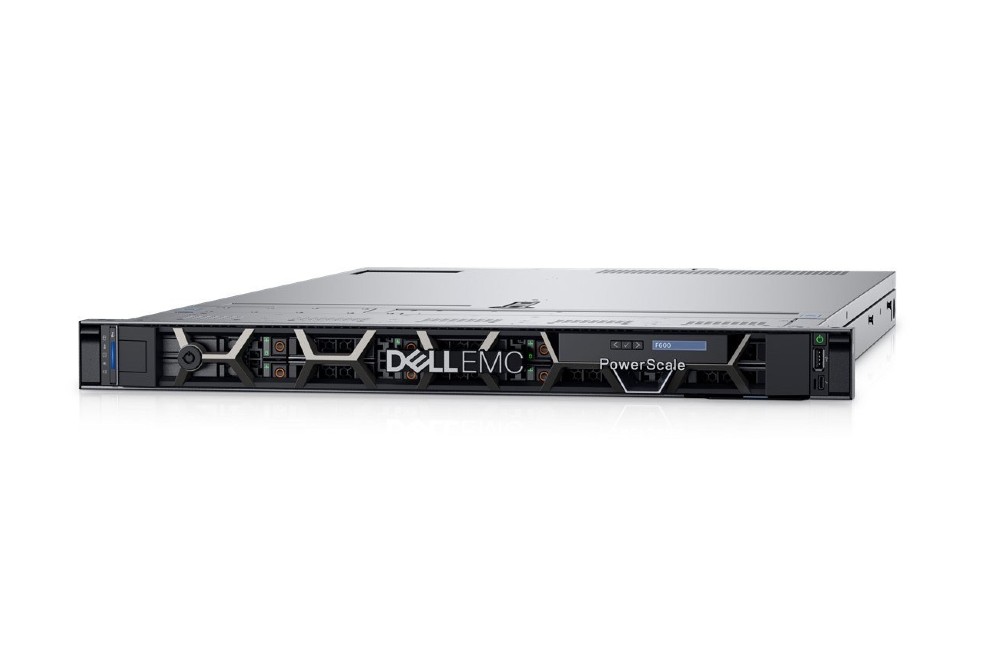Dell EMC wants to help businesses get a grip on their unstructured data, whether it’s documents, images, videos or social media content, with a new line-up of storage systems designed to capture and capitalise on such content.
Dubbed PowerScale, this new family of storage systems has been specifically engineered to deal with high volumes of unstructured data. It runs on the latest generation of OneFS, the operating system best known for powering Dell EMC Isilon, which has been updated to provide enhanced data reduction technology, access to AWS S3 objects and support for Ansible, Kubernetes and OpenShift.
In terms of hardware, the PowerScale family features new 1U PowerEdge-based PowerScale all-flash and NVMe nodes and existing Isilon all-flash, hybrid and archive nodes. What’s more, the hardware is completely scalable, as customers can go from 11TB raw capacity to 60PB and millions of file operations without disruption or costly downtime for customers. Dell claims that nodes can be added to either PowerScale or an existing Isilon cluster in just 60 seconds.
Dell says that the new PowerScale family delivers up to 15.8 million input-output operations per second (IOPS) per cluster, offering the performance that customers need to handle demanding AI, analytics, IoT, digital media, healthcare and life sciences workloads.The company says that the new PowerScale F200 notes are up to five times faster than its predecessor, while enhanced inline data reduction makes the platform up to six times more efficient.
“The amount of unstructured data enterprises store as file or object storage is expected to triple by 2024, and there are no signs of it slowing,” said Dan Inbar, president and general manager, Storage, Dell Technologies.
“In this data era, businesses need a simple, seamless and cost-effective way to store and use unstructured data to innovate, create differentiation and bring products to market faster. The Dell EMC PowerScale family provides the foundation companies need to unlock the potential of their data, no matter where it resides, and use it to drive meaningful business impact.”
In addition to the new hardware, Dell is also introducing Dell EMC DataIQ software. This helps companies extract business value from unstructured data, typically uncategorised and found in siloes throughout businesses. DataIQ breaks down data siloes by delivering a single view of file and object data across Dell EMC, third-party and public cloud storage. Users can gain better control over their data, ensure the right teams have access to it, and make the most of their investment by ensuring data is stored on the right tier within their storage environment.
Users won’t just have to deal with local data, however, as the PowerScale line-up has been designed with multi-cloud support in mind. PowerScale for Multi-cloud can directly connect to all major public clouds as a managed service – ideal for customers looking to move or deploy demanding apps in the cloud. Google Cloud customers looking to save time and management complexity can choose Dell Technologies Cloud PowerScale for Google Cloud, a native cloud service that combines the performance, scale, and consistent experience of PowerScale with the economics and simplicity of Google Cloud.
Keith Bradley, IT manager, Nature Fresh Farms, commented, “When you buy our tomatoes, cucumbers and peppers, what you don’t see is the sheer amount of data created by taking that produce from the greenhouse to the grocer. Nature Fresh Farms is a data-driven operation that needs storage that can scale-out without causing costly technology refreshes. That’s why we’re an Isilon customer today, and why we’re so excited about PowerScale. New nodes at the edge that integrate seamlessly with our existing clusters will be a gamechanger.”
Dell EMC PowerScale OneFS 9.0, PowerScale nodes and DataIQ are now generally available globally.



